
- Home
- Pakistan
- China-led cooperation in South Asia: Experts advocate new model of regional engagement beyond geopol ..
China-led Cooperation In South Asia: Experts Advocate New Model Of Regional Engagement Beyond Geopolitics
Sumaira FH Published July 30, 2025 | 06:00 PM

ISLAMABAD, (UrduPoint / Pakistan Point News - 30th Jul, 2025) The China Program at the Institute of Regional Studies (IRS) hosted a panel discussion titled “China-led Cooperation in South Asia Beyond Geopolitics: Partnerships for Peace, Development and Common Prosperity.”
The event brought together ambassadors, academics, policy analysts, and media professionals to examine the emerging trilateral cooperation of China, Pakistan, and Bangladesh.
In his opening remarks, Ambassador Jauhar Saleem, President of IRS, highlighted the urgency of rethinking regional collaboration in South Asia, a region home to over 1.9 billion people yet plagued by persistent underdevelopment, limited integration, and pressing environmental and geopolitical challenges.
“South Asia accounts for only 5 per cent of intra-regional trade, the lowest in the world. We need to move beyond outdated frameworks and explore new models that prioritize cooperation over confrontation,” he said.
Ambassador Saleem underscored that the trilateral mechanisms involving China, Pakistan, and Bangladesh are not a replacement for SAARC but rather a pragmatic response to its stagnation.
He noted that Bangladesh, once heavily influenced by India, is now undergoing a developmental shift and diversifying its regional engagement.
Jauhar further pointed to a growing number of cooperative frameworks, including the recent China–Pakistan–Afghanistan trilateral meeting, which demonstrate a commitment to shared development without strategic or military overtones.
Building on this, Ambassador Moin ul Haque, a former Pakistani Ambassador to China, echoed the need for such platforms amid the consistent obstruction of regional initiatives.
“SAARC began with high hopes—it was once seen as South Asia’s answer to the European Union or ASEAN. But time and again, we’ve seen constructive initiatives, whether from Pakistan or China, being blocked by a single member state,” he said, alluding to India’s opposition.
Recalling his tenure as Ambassador to China, Haque shared insights on successful collaborations that excluded India due to its reluctance to participate.
He cited the establishment of the China–South Asia Countries Emergency Supply Reserve and a poverty alleviation and development cooperation center, initiatives that emerged during the pandemic and have since contributed to vaccine access and poverty reduction across South Asia.
Lt. Gen. Dr. Aminul Karim, a professor at the Bangladesh University of Professionals, added that it is both possible and desirable for the three countries to build cooperation in key non-traditional sectors, such as climate change, information and communication technology (ICT), and human resource development.
This form of collaboration does not require a military alliance, which reinforces the idea that these nations are not pursuing geopolitical or strategic rivalry. Instead, their Primary objective is to promote mutual development and prosperity. Such cooperation is rooted in shared interests, not in power politics.
At the same time, this framework respects the diverse values, cultures, and belief systems of other countries, allowing space for peaceful coexistence and constructive engagement.
In this spirit, the partnership can serve as a model of harmony and inclusive development.
Panellist Dr. Salma Malik, Associate Professor at the Department of Defence and Strategic Studies, Quaid-i-Azam University, noted that countries like Bhutan, Nepal, Maldives, and Sri Lanka are growing increasingly disillusioned with India’s hegemonic posture.
“China’s model of cooperation, as seen in the China–South Asia Cooperation Forum and the South Asia Expo in Kunming, offers a contrast—one rooted in inclusivity, green growth, and connectivity,” she said.
The Expo brought together over 200 delegates from 10 countries, excluding India, to align development strategies and promote collaboration in areas such as agriculture, digital technology, healthcare, and trade.
Professor Lin Minwang, Deputy Director of the Centre for South Asian Studies and Vice Dean at the Institute of International Studies, Fudan University, emphasized that China’s initiatives are often misunderstood or mischaracterised.
“China has repeatedly tried to allay Indian suspicions. It has no intention of creating a sphere of influence. Rather, it seeks open, inclusive, and mutually beneficial cooperation. Unfortunately, India has consistently declined these invitations,” he noted.
The discussion also touched upon media narratives and public diplomacy.
Senior journalist and Author Kamran Yousaf offered a critical reflection on Pakistan’s diplomatic posture.
“Our approach tends to be too defensive, too apologetic. We need to project confidence in our foreign policy. India’s military rarely comments on political matters, but it made a point to criticize this trilateral mechanism. That in itself reflects the significance of this evolving cooperation,” he said.
Participants collectively agreed that the future of South Asian cooperation cannot remain hostage to geopolitical rivalries.
Trilateral and multilateral frameworks rooted in shared development goals, such as those emerging under the Belt and Road Initiative (BRI), offer a much-needed alternative.
As traditional institutions like SAARC remain paralyzed, these new platforms present a more flexible, functional model for promoting peace, reducing poverty, and enhancing connectivity in the region.
The event concluded with a call to move beyond speculative criticism and focus on the tangible benefits of regional cooperation.
Panellists emphasized that these emerging frameworks are not anti-anyone but pro-development, offering inclusive and forward-looking pathways to prosperity.
A vibrant Q&A session followed, marked by active audience engagement, making the discussion both insightful and fruitful while underscoring the importance of such platforms in shaping South Asia’s cooperative future.
Recent Stories
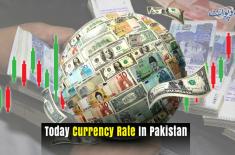
Currency Rate In Pakistan - Dollar, Euro, Pound, Riyal Rates On 31 July 2025
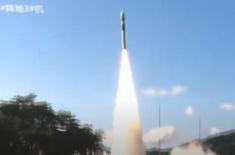
Pakistan launches new Remote Sensing Satellite

Today Gold Rate in Pakistan 31 July 2025

Thirty-five Palestinians seeking aid killed by Israeli gunfire across Gaza
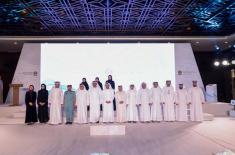
National Committee to Combat Human Trafficking launches Smart Referral System

CBUAE maintains Base Rate at 4.40%

Increasing exports, job opportunities top priority of govt: Kiyani
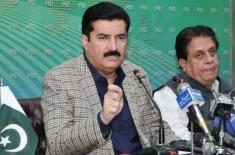
KP Governor slams PTI over law and order failures in province

Prime Minister's vision is prosperous Balochistan, strong Pakistan: Imran Shah
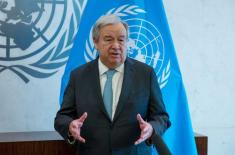
World Day Against Trafficking in Persons: UN calls for standing with victms, hol ..

British Showjumping honours Sheikha Fatima bint Hazza for outstanding contributi ..
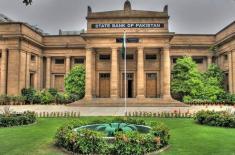
SBP governor confident to settle $25.9 billion external debt repayments comforta ..
More Stories From Pakistan
-

Pakistan launches new Remote Sensing Satellite
7 minutes ago -
Rawal Dam spillways opened as water level reaches 1,750 feet
8 hours ago -

Increasing exports, job opportunities top priority of govt: Kiyani
10 hours ago -

KP Governor slams PTI over law and order failures in province
10 hours ago -

Prime Minister's vision is prosperous Balochistan, strong Pakistan: Imran Shah
10 hours ago -

KP CM chairs apex committee meeting on security, emphasizes unity against terrorism
10 hours ago
-

Commissioner Kohat Division chairs meeting on gas pipeline networking
10 hours ago -

US President imposes a 25% tariff on goods imported from India
10 hours ago -

Federal Minister for Education and Professional Training Dr. Khalid Maqbool Siddiqui meets delegatio ..
10 hours ago -

No activity seen on ground for PTI movement on Aug 5: Minister for Board of Investment Qaiser Ahmed ..
10 hours ago -

Federal Minister for National Heritage and Culture, Mr. Aurangzeb Khan Khichi Inaugurates ‘Seeing, ..
10 hours ago -

India isolated globally: Federal Minister for Climate Change and Environmental Coordination, Senator ..
10 hours ago










